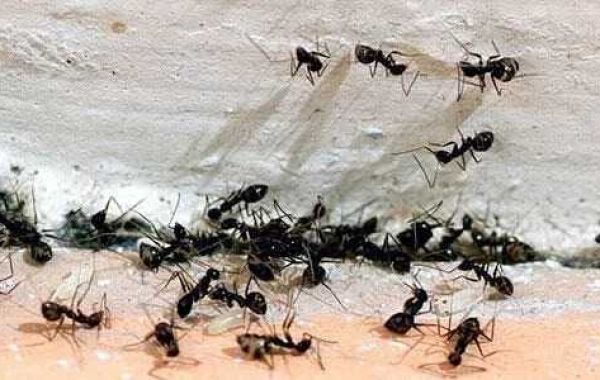Introduction:
Pests are a common problem that most homeowners face at some point in their lives. From ants to cockroaches and rodents, these pesky creatures can cause serious damage to your home and pose health risks to you and your family. That's why it's crucial to choose the right pest control method to get rid of them effectively. In this article, we'll show you how to choose the right pest control method for your home so you can enjoy a pest-free environment.
1: Type of Pest
The first factor to consider when choosing a pest control method is the type of pest you're dealing with. Different pests require different approaches, so it's important to identify the type of pest you have before selecting a pest control method. For instance, if you have a rodent problem, you may need to use traps or bait stations, while if you have an ant problem, you may need to use baits or sprays.
2: Severity of Infestation
Another factor to consider is the severity of the infestation. If you have a minor infestation, you may be able to take care of it with DIY methods. However, if you have a major infestation, you may need to call in the professionals. A pest control expert will be able to assess the situation and recommend the best course of action.
3: Environmental Impact
It's also important to consider the environmental impact of the pest control method you choose. Some pesticides can be harmful to the environment, so you may want to choose an eco-friendly option. Look for products that are labeled "organic" or "natural," as these are usually safer for the environment.
4: Cost
Cost is another factor to consider when choosing a pest control method. DIY methods are generally cheaper than professional services, but they may not be as effective. Professional services can be costly, but they're usually more effective and come with a guarantee. Consider your budget and the severity of the infestation when making your decision.
5: DIY Pest Control Methods
1: Traps
Traps are a popular DIY pest control method for rodents and insects. There are various types of traps available, including snap traps, glue traps, and live traps. Snap traps are the most common and effective for rodents, while glue traps are more effective for insects. Live traps are a humane option for catching and releasing rodents and other small animals.
2: Baits
Baits are another popular DIY pest control method. They work by attracting pests with a lure and then poisoning them. Baits are effective for ants, cockroaches, and rodents. However, they can be dangerous if not used properly, so be sure to follow the instructions carefully.
3: Essential Oils
Essential oils are a natural and eco-friendly pest control option. Some essential oils, such as peppermint oil and tea tree oil, are effective at repelling insects. You can use them by mixing a few drops with water and spraying the solution around your home.
6: Professional Pest Control Services
1: Extermination Services
If you have a major infestation or DIY methods haven't worked, you may need to call in the professionals. Extermination services use a variety of methods, including pesticides and fumigation, to eliminate pests. They're usually more effective than DIY methods and come with a guarantee.
2: Integrated Pest Management (IPM)
Integrated Pest Management (IPM) is a holistic approach to pest control that combines various methods to control pests. It involves using a combination of techniques such as monitoring, habitat modification, exclusion, and biological control. This method is environmentally friendly and less toxic than traditional pest control methods.
3: Professional Inspection
Before choosing a pest control method, it's essential to get a professional inspection of your home. A pest control expert will assess the situation and identify the type of pest, the severity of the infestation, and the best course of action. They'll also recommend preventative measures to prevent future infestations.
Frequently Asked Questions (FAQs)
1: Is DIY pest control as effective as professional services?
DIY pest control methods can be effective for minor infestations, but they're not always as effective as professional services. Professional services have access to stronger and more potent chemicals and have more experience dealing with different types of pests.
2: What is the best pest control method for ants?
The best pest control method for ants depends on the type of ant and the severity of the infestation. Baits and sprays are usually effective for minor infestations, while professional services may be necessary for major infestations.
3: How can I prevent future pest infestations?
To prevent future pest infestations, it's important to keep your home clean and tidy, seal any cracks or gaps in your home, and eliminate any standing water sources. Regular pest inspections and preventative measures can also help keep pests at bay.
Conclusion
Choosing the right pest control method for your home can be a daunting task, but by considering factors such as the type of pest, severity of infestation, environmental impact, and cost, you can make an informed decision. DIY methods can be effective for minor infestations, but for major infestations, it's best to call in the professionals. Remember to also consider preventative measures to keep pests from returning. With the right pest control method, you can enjoy a pest-free home and protect your family's health and well-being.









